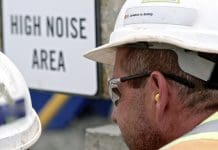A survey from Public Practice has highlighted the challenges faced by local authority planning and placemaking teams
The survey found that nearly 80% of local authorities struggle to attract qualified and skilled candidates to fill vacant positions.
The survey was designed to assess the skills gaps and the impact of resource constraints on local authority placemaking professionals and their teams across England.
The survey also found that two-thirds of local authority professionals feel their teams lack the capacity to meet their authority’s strategic objectives. 66% of respondents felt that their teams did not have the necessary skills and resources to address their authority’s top priorities.
These priorities usually include goals such as improving opportunities and prosperity for residents, reducing inequality and poverty, and meeting targets for net-zero emissions.
Results also showed that the morale and job satisfaction of these professionals were negatively affected by capacity challenges. Over half of the survey respondents (54%) reported difficulties in retaining staff within their councils. 14% of those surveyed expressed a desire to leave the public sector altogether.
Job satisfaction is poor for local authority planning professionals
The average score for job satisfaction for public sector place workers in England was 5.66 out of ten, a significant decline from the previous year’s score of 6.32. This is significantly lower than levels observed in the broader workforce, where satisfaction typically ranges between 7 and 8. In a global survey from 2020, more than 74% of UK workers expressed very high job satisfaction.
The challenge of staff retention is highlighted by recent data on the local government workforce, which revealed a staggering 32% decrease in the number of full-time equivalent workers in local councils over the past decade.
Local government employment continues to decline, with a 10% reduction in full-time positions over 18 months. According to the research, 78% of placemaking professionals struggle to attract qualified candidates and 17% fail in all recruitment efforts.
Skill gaps grow in the public sector
The survey also revealed skill gaps in placemaking teams, most notably in environmental sustainability (65%), data and digital skills (62%), and architecture, urban design and master planning (61%). A lack of capacity in planning and policy was also a concern (43%), as well as inadequate team diversity (over 40% believed their teams didn’t reflect the community’s diversity).
“The results of this research reveal a concerning reality for local authorities but provide an accurate depiction of what we are seeing in our own research. On the ground, Local Planning Authorities struggling under the weight of budget reductions, resulting in unmanageable workloads and overstretched staff,” said Victoria Hills, chief executive of the Royal Town Planning Institute.
“Without well-resourced, qualified planners, Local Planning Authorities cannot meet the crucial housing and infrastructure needs of our communities. Whilst we welcome recent announcements on the planning skills delivery fund, we must urgently address the systemic resourcing issues to safeguard both our economy and the well-being of planners,” she concluded.

















